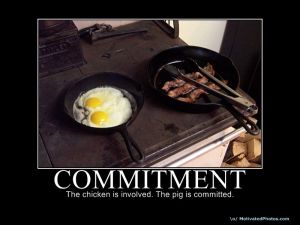 After a recent FWE&E event, I took a moment to meet Deborah Campbell from Catalyst.org and I’m so glad that I did.
After a recent FWE&E event, I took a moment to meet Deborah Campbell from Catalyst.org and I’m so glad that I did.
She mentioned a study they did of Talent Management systems and how they were gender biased. To be candid about it, I was a little shocked at the idea.
I can seriously think of few functions more interested in equality, than Talent.
So I took a look at the report myself, and I realized how this could happen, it’s really similar to my own gender bias. The truth is that, in most organizations, the idea of leadership has a strong masculine undertone.
This comes more from ethnocentrism than from malice.
Today’s reality is, that most senior leaders are men, and when they define the values that feel important to leadership they can’t help but describe themselves.
Those leadership values then shape the measurement of talent (typically through ratings of performance and potential) and those biases lead to the logical end result, a very small population of women senior leaders.
If you find yourself thinking that your pipeline of women leaders feels underrepresented, consider these two suggestions
- Review your leadership competencies to make sure that stereotypically male attributes do not dominate (e.g., action oriented, results driven) and that important stereotypically female attributes are not excluded (e.g., collaborative and visionary).
- Considering doing Talent Reviews with a broader population of the workforce, so that additional hidden talent can be identified earlier for leadership grooming.
I strongly recommend that you give this report a read if you are interested in building a larger and more diverse pipeline to your leadership succession plans.
I’d also like to give my thanks to the Catalyst organization who are doing an amazing job to educate us all.


